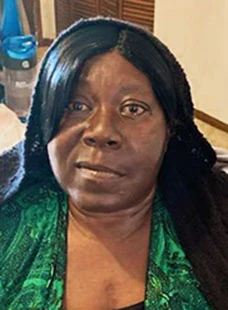
Every caregiver knows that a patient’s needs don’t stop on weekends.
Yet, that’s what Shirley Green’s managed care provider seems to believe, because they stopped sending home health aides on weekends to care for their bedridden patient. Shirley has been approved for four hours of care on Saturdays and Sundays. Sometimes aides show up for two hours; sometimes not at all either day or all weekend.
She’s enrolled in Florida’s Medicaid Long-Term Care (LTC) Waiver program, where enrollees receive home health care and other services needed to live at home as an alternative to nursing home care. These Medicaid Services – Home and Community-Based Services (HCBS) – are provided to eligible individuals through Medicaid managed care plans.
After a stroke, Shirley can no longer walk and needs assistance with all her daily activities. Her daughter Anisa, who works full time, cannot operate the special lift that’s needed to move her mother out of bed and to her wheelchair. When aides fail to show up, her mother stays in bed.
“I don’t get out of bed that day,” says Shirley, who speaks with difficulty, but is aware of her surroundings and suffers when she is left in bed. Staying in bed with soiled diapers puts Shirley at higher risks of bedsores and other skin infections, which could become life threatening.
Shirley has a reliable and trusted aide who cares for her Monday through Friday.
Her social worker said: “She gets such good care during the week that she hasn’t developed any serious complications.” But that may be a matter of time before a fall, another stroke or other ailments afflicts her. If there is no one present to help her, it could have catastrophic consequences.
“That’s not good,” says Shirley. When she is moved to a wheelchair, she visits her front porch to enjoy fresh air and sunshine. And she can take meals with her aide or daughter in the house, which lifts her spirits and improves her sense of well-being and normalcy.
‘When I’m left alone, I just lie in bed and wait for someone to come,” says Shirley. “Sometimes, that’s a real long time.”
“I don’t get out of bed that day,” says Shirley, who speaks with difficulty, but is aware of her surroundings and suffers when she is left in bed. Staying in bed with soiled diapers puts Shirley at higher risks of bedsores and other skin infections, which could become life threatening.”
Like many vulnerable seniors, Shirley isn’t aware of her rights and how to advocate for her needs. Under the contract between the state Medicaid Agency and each managed care plan, plans must provide enrollees with what is called a “Service Gap Contingency and Back-up Plan,” informing the enrollee of resources available –and not rely on the enrollees “informal support system” unless that is the enrollee’s choice. Under the contract, the managed care plan must ensure that gap services are provided within 3 hours. If Shirley’s managed care company is unable to provide an aide on the weekend, Shirley is entitled to get an aide from another provider, even if it’s not her contracted provider. Florida Health Justice Project has created fact sheets and guides to help Florida’s seniors navigate the system and assure their rights are protected.
The inconsistent care has been going on for nearly a year, with matters getting worse after the COVID-19 pandemic has made staffing more difficult, as home health aides have left due to low pay and high risk of contracting the virus.
Hopefully this situation will change in the very near future. The recently enacted American Rescue Plan (ARP) provides additional federal matching funds for HCBS to be spent between April 2021-March 2022. One way states can use these short term funds is adopting policies that will increase pay for direct care workers. Accessing this funding ASAP is critical for Shirley, and others in her situation.
And while the APR funding is only for one year, going forward, the Biden administration has proposed a $400 billion expansion of Home and Community based Services that could begin to fix a terribly under-funded system, where employees are severely underpaid.

Florida Health Justice Project engages in comprehensive advocacy to expand health care access and promote health equity for vulnerable Floridians.
A copy of the official registration and financial information may be obtained from the division of consumer services by calling 1-800-HELP-FLA (435-7352) toll-free within the state. Registration does not imply endorsement, approval, or recommendation by the state.